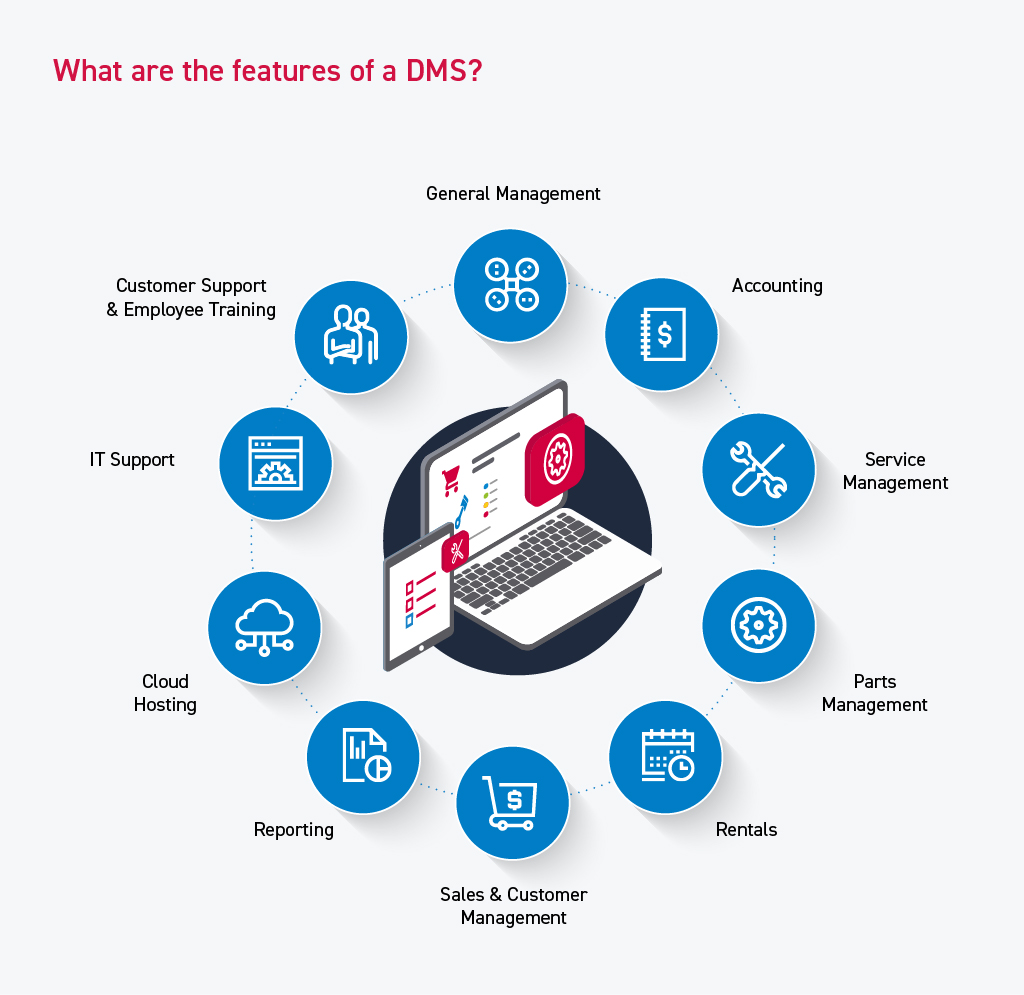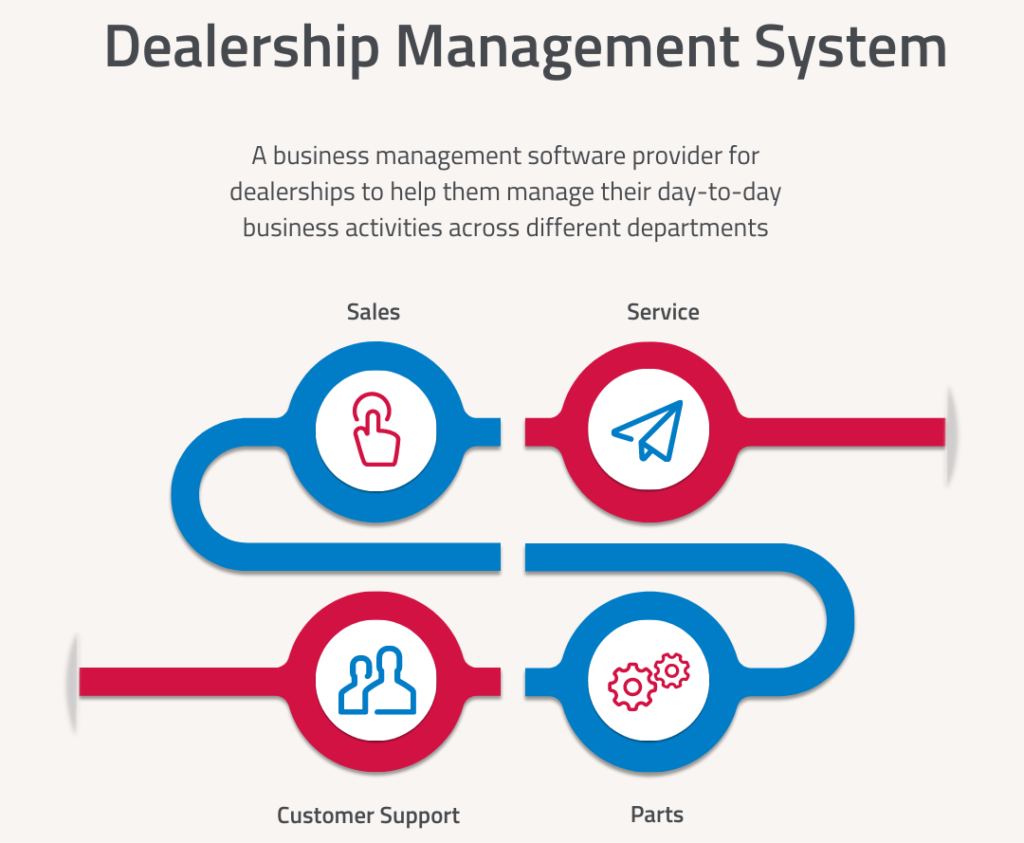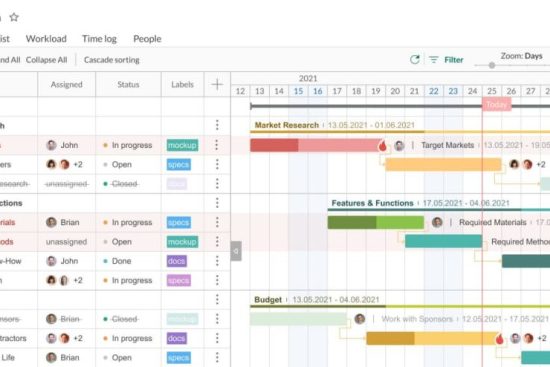
A Dealer Management System (DMS) helps streamline dealership operations. It improves efficiency and customer satisfaction.
In a world where dealerships handle numerous tasks daily, a DMS is crucial. Understanding the process flow of a DMS can transform how a dealership runs. From inventory management to sales tracking, a DMS integrates various functions. It offers a seamless experience for both the staff and customers.
This blog will explore the key steps in the DMS process flow. We’ll break down each stage to show how it benefits a dealership. By the end, you’ll have a clear picture of how a DMS can optimize your operations. Stay tuned to learn more about this essential tool for modern dealerships.
Credit: creately.com
Introduction To Dealer Management System
A Dealer Management System (DMS) is vital for any dealership. It helps manage all aspects of dealership operations. This includes sales, finance, inventory, and customer relationships. A DMS streamlines processes, making the dealership more efficient. It is a comprehensive solution for all dealership needs.
What Is A Dealer Management System?
A DMS is software designed for car dealerships. It integrates various functions into one platform. This includes inventory management, sales processing, and customer service. A DMS ensures all data is centralized. This makes it easier to access and manage. It is a tool that helps dealerships run smoothly.
Importance Of Dms In Operations
A DMS is crucial for efficient operations. It reduces manual tasks, saving time. It also minimizes errors, which can be costly. With a DMS, dealerships can track inventory in real-time. This ensures they always know what is available. It also helps manage customer information. This leads to better customer service. A DMS also generates reports. These reports help in making informed decisions. Overall, a DMS enhances productivity and profitability.
Key Features Of A Dealer Management System
Dealer Management Systems (DMS) are vital for running efficient dealership operations. Understanding the key features of a DMS can help improve workflows and boost productivity. Let’s explore some essential features that make these systems indispensable.
Inventory Management
Inventory management is crucial for dealerships. A good DMS tracks vehicle stock, parts, and accessories. It ensures you never run out of essential items. The system updates inventory levels in real-time. This helps in making informed restocking decisions. Efficient inventory management can reduce costs and increase sales opportunities.
Sales And Customer Management
Sales and customer management features are essential in a DMS. They help track customer information and sales history. This enables personalized service and follow-ups. The system can also manage leads and automate sales processes. This ensures no potential sale slips through the cracks. Happy customers often become repeat buyers, boosting your revenue.
Service And Maintenance
Service and maintenance features keep track of all service appointments. They manage work orders and technician schedules. A DMS can send reminders for upcoming services. This keeps customers engaged and vehicles in top condition. Efficient service management leads to higher customer satisfaction and loyalty.
Implementing A Dealer Management System
Implementing a Dealer Management System (DMS) can transform how dealerships operate. It enhances efficiency, improves customer experience, and boosts sales. Understanding the process flow is crucial for a smooth implementation. Let’s explore the steps involved and the challenges you might face.
Steps To Implementation
First, conduct a needs assessment. Identify what your dealership requires from a DMS. Evaluate the current processes and pinpoint areas needing improvement.
Next, select the right system. Compare different DMS options. Look for features that match your needs. Consider user-friendliness, scalability, and support services.
Then, prepare your team. Train your staff on using the new system. Ensure they understand its benefits and how it will improve their tasks.
After training, migrate your data. Transfer existing data to the new system. Double-check for accuracy and completeness.
Finally, go live. Start using the DMS in real-time. Monitor the process closely. Make adjustments as needed to ensure smooth operation.
Common Challenges And Solutions
Resistance to change is a common challenge. Employees may fear new systems. Address these fears through communication and training. Show the benefits and provide support.
Data migration can be tricky. Inaccurate data can disrupt operations. Ensure thorough checks during the transfer. Use tools that help in data validation.
System integration issues might arise. The new DMS must work with existing systems. Test integrations thoroughly. Resolve any conflicts before going live.
Finally, ongoing support is crucial. Post-implementation support helps address issues promptly. Choose a DMS provider that offers continuous assistance.
Integrating Dms With Other Systems
Integrating a Dealer Management System (DMS) with other systems can streamline dealership operations. These integrations help improve efficiency and provide a unified approach to managing data. By integrating DMS with ERP and CRM systems, dealerships can optimize their processes and enhance customer experiences.
Erp Integration
Enterprise Resource Planning (ERP) systems are crucial for managing business processes. Integrating DMS with ERP allows seamless data flow between different departments. This integration helps ensure consistency and accuracy in information.
Here are some benefits of integrating DMS with ERP:
- Improved inventory management
- Accurate financial reporting
- Streamlined procurement processes
- Enhanced supply chain management
- Identify the key data points to be shared.
- Set up data mapping between DMS and ERP.
- Implement data synchronization protocols.
- Test the integration thoroughly.
Crm Integration
Customer Relationship Management (CRM) systems help manage customer interactions and data. Integrating DMS with CRM provides a comprehensive view of customer information. This helps in delivering personalized services and improving customer satisfaction.
Key advantages of DMS and CRM integration include:
- Centralized customer data
- Better customer insights
- Improved marketing strategies
- Enhanced customer service
- Analyze the data requirements of both systems.
- Establish a secure data exchange mechanism.
- Configure the synchronization settings.
- Conduct regular reviews and updates.
Integrating DMS with ERP and CRM systems is essential for modern dealerships. These integrations help streamline operations, improve data accuracy, and enhance customer experiences.
Optimizing Inventory Management
Effective inventory management is vital for any dealer management system. It ensures that the right products are available at the right time. This reduces costs and increases customer satisfaction. Let’s explore how to optimize inventory management.
Real-time Inventory Tracking
Real-time inventory tracking is crucial. It helps you know exactly what you have in stock. This prevents overstocking and stockouts. You can easily update inventory levels as new items arrive or are sold.
With real-time tracking, you can:
- Monitor stock levels in real time
- Identify fast-moving items
- Reduce excess inventory
- Improve order accuracy
Real-time data helps you make informed decisions. It improves your overall inventory management process.
Automated Reordering
Automated reordering ensures you never run out of stock. The system places orders automatically when stock levels reach a certain point. This saves time and reduces manual errors.
Benefits of automated reordering include:
- Consistent stock levels
- Reduced human error
- Time savings
- Improved efficiency
Setting reorder points is simple. You define the minimum stock level for each item. The system does the rest, ensuring you always have enough products on hand.
Optimizing inventory management with real-time tracking and automated reordering helps streamline operations. It enhances customer satisfaction and boosts profitability.
Enhancing Customer Experience
In the competitive automotive industry, enhancing customer experience is key. A well-implemented Dealer Management System (DMS) can significantly improve customer satisfaction. This system helps in personalizing interactions, scheduling services, and managing customer data efficiently.
Personalized Marketing
A robust DMS allows dealerships to tailor marketing campaigns to individual customers. By analyzing customer data, dealerships can create personalized offers. These offers can be based on past purchases, preferences, and service history.
- Customer Data Analysis: Understand customer behavior and preferences.
- Targeted Campaigns: Deliver relevant marketing messages.
- Increased Engagement: Personalized marketing leads to better customer engagement.
This approach not only increases sales but also strengthens customer loyalty. Customers feel valued when they receive personalized offers and recommendations.
Efficient Service Scheduling
An efficient service scheduling system is crucial for customer satisfaction. A DMS streamlines the scheduling process, ensuring customers get timely service.
- Easy Appointment Booking: Customers can book services online or via an app.
- Automated Reminders: Send reminders to reduce no-shows.
- Optimized Workflow: Technicians can manage their schedules effectively.
With a DMS, customers experience less wait time and better service. This leads to higher satisfaction and repeat business.
Overall, a Dealer Management System enhances customer experience by personalizing interactions and streamlining service scheduling. This not only benefits customers but also helps dealerships maintain a competitive edge.
Analyzing Performance Metrics
Analyzing performance metrics is crucial in a Dealer Management System (DMS). It helps dealerships understand their operations better. By focusing on key performance indicators (KPIs), they can identify strengths and weaknesses. This process aids in making informed decisions to improve overall efficiency.
Key Performance Indicators
KPIs are measurable values that show how effectively a dealership meets business objectives. Common KPIs include sales figures, customer satisfaction scores, and service turnaround times. These indicators provide insight into various aspects of the dealership’s performance. Tracking these metrics regularly helps in maintaining a high standard of service.
Using Data For Decision Making
Data-driven decisions lead to better outcomes. By analyzing performance data, dealerships can identify trends and patterns. This information is valuable for strategic planning. For instance, if sales are declining, the data can show why. It could be due to poor customer service or a lack of inventory. Addressing these issues promptly can prevent further losses.
Informed decisions also help in resource allocation. Knowing which areas need improvement allows for better investment of time and money. This ensures that efforts are focused on areas that will yield the best returns.

Credit: binmile.com
Future Trends In Dealer Management Systems
Dealer management systems (DMS) are evolving rapidly. These systems help dealerships manage their operations smoothly. New trends are emerging, making these systems more efficient and user-friendly. Let’s explore some of these future trends.
Ai And Automation
Artificial intelligence (AI) and automation are transforming DMS. AI can analyze data quickly and accurately. It helps dealers make better decisions. Automation can handle repetitive tasks. This saves time and reduces errors. AI and automation also improve customer service. They provide personalized experiences for customers. This leads to higher satisfaction and loyalty.
Mobile Accessibility
Mobile accessibility is becoming crucial in DMS. Dealers need to access data on the go. Mobile-friendly systems allow this. They provide real-time information. This helps in making quick decisions. Mobile apps also improve communication. Staff can stay connected, no matter where they are. Customers can also benefit. They can schedule services or view inventory from their phones. This makes the process more convenient for everyone.

Credit: www.discorp.com
Frequently Asked Questions
What Is A Dealer Management System?
A Dealer Management System (DMS) is software that helps dealerships manage operations. It includes inventory, sales, and customer management.
How Does A Dms Improve Efficiency?
A DMS streamlines processes by automating tasks and providing real-time data. This helps in making informed decisions quickly.
What Features Should A Dms Have?
A good DMS should include inventory management, customer relationship management (CRM), sales processing, and financial reporting.
Can A Dms Integrate With Other Systems?
Yes, a DMS can integrate with other systems like CRM, ERP, and accounting software for seamless operations.
Conclusion
A Dealer Management System streamlines dealership operations and enhances customer satisfaction. It simplifies inventory tracking and improves sales processes. Effective management leads to better decision-making. The system ensures smoother workflow and boosts efficiency. Implementing a DMS can transform dealership performance.
Stay ahead by adopting the right technology. Keep your dealership competitive and customer-focused. Embrace the benefits of a Dealer Management System today.

